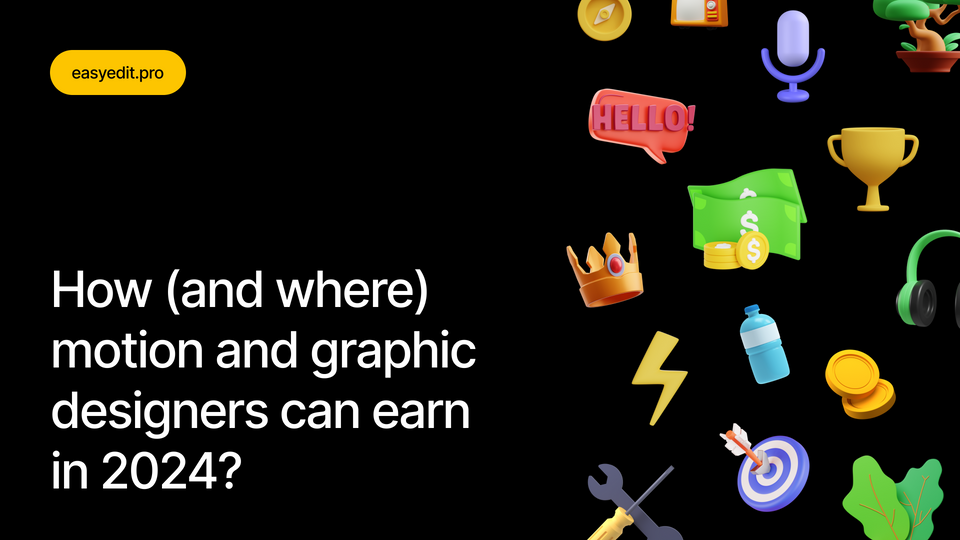
Created: 2 years ago
5 Best Audio Editing Software in 2024
Learn about the best audio editors to use in 2024!
Read to find out!
Ableton Live
Best for electronic music production and live performances - Ableton Live gives us all the tools to improvise with our music!
You can use endless amounts of audio effects, easily create loops and patterns, customize workflow and do much more.
Pros:
Here you’ll find a wide selection of audio effects and can start creating music even with limited experience. Flexible and easy to navigate, you can additionally set the interface to meet your specific needs. Especially important is that you can effortlessly move between studio and live setups.
It makes sense to mention the Ableton Push Controller - a great tool to seamlessly integrate the newest-generation hardware to your DAW for hands-on control, clip launching, and instrument manipulation. Made specifically for Ableton, this controller is the best way to create your unique sound and experiment with your music.
Another great feature is that you won’t need to pay any subscription fees after making the initial purchase of Ableton Live.
Cons:
No pitch correction tools, and mastering Ableton cannot be the easiest task. You may primarily need Ableton for music production and live performances, than for podcasts and vocal editing. Additionally, it’s a premium audio software, so the price is one of the highest on the market.
You’ll need a strong PC for optimal performance - you can immediately notice this once creating a complex project.
Perfect for:
- Electronic music producers: Make unique sounds and experiment with the loop-based workflow.
- Stage performers: Create great live performances.
Price:
Starting from $99 for Ableton Live 11 Intro and up to $799 for Ableton Live 11 Suite.Includes free 90-day trial.
Adobe Audition
Adobe Audition is a professional audio editor used by many industry experts. While it includes a lot of decent features, completely suitable for podcasters and video editors, it’s not an option for those who prefer one-time purchases over monthly subscription fees.
Pros:
Great for editing, mixing, and mastering audio, including various technical tools for complex projects. As expected, it’s easy to combine audio editing inside Adobe Audition and video editing in Premiere Pro.
Among the tools are the most needed ones - noise reduction, restoration, spectral editing, dialogue cleaner, EQ matching, and others, which makes it a perfect option for editing podcasts or fixing the audio parts in your clip.
Cons:
As said above, you’ll need to pay for the software on a monthly basis, which is not the cheapest solution. As it usually happens with premium editing software, it’s not very easy to master as a beginner. You’ll also need a strong PC to run the software optimally.
Another inconvenient feature is the lack of MIDI input, which makes Adobe Audition not suitable for creating music directly.
Perfect for:
- Content creators requiring high-quality audio: Perfect for polishing audio for YouTube videos, films, interviews, and podcasts.
- Experienced users seeking industry-standard software: Great for those comfortable with similar editing tools, especially if you edit videos in Premiere Pro.
Price:
Subscription-based, starting at $20.99/month with student discounts available.Includes free trial.
Apple Logic
Apple Logic Pro is a feature-packed DAW for Mac users, offering a one-time purchase and extensive tools for audio production, from composing to podcasting.
Pros:
Of course, Apple Logic provides seamless integration with your Apple devices. You’ll get a beloved user-friendly, intuitive interface designed for Apple users. The one-time purchase makes Apple Logic a great option for those who don’t like subscription fees.
Choose among 5,900+ instrument presets, 15,000+ loops and versatile plugins, which completely cover your potential need in third-party plugins. Inside you’ll find Dolby Atmos and Spatial Audio support.
Additionally, you can create live performances, like with Ableton Live - but within the familiar interface.
Cons:
While you won’t have to pay a monthly fee, the one-time purchase is not the cheapest on the market(though, it is still cheaper than Ableton Live).
Exclusively for Apple users.
Perfect for:
- Mac-loyal creators: Perfect choice for audio professionals, composers, and musicians, who seek a great DAW within the Apple ecosystem.
- One-time purchase fans: For producers and creators prefer upfront costs over ongoing subscriptions.
Price:
One-time purchase of $199.99. If you’re an iPad user, you’ll need a subscription of $4.99 per month.
Steinberg Cubase Pro
Cubase Pro is a premium DAW, designed for professional music production. The best tool for creating compositions that include orchestral and live-sounding instrument emulation. Not made specifically for podcasting.
Pros:
Like a premium audio editing software, Cubase Pro is packed with features for composing, recording, mixing, and mastering music and includes a vast collection of instruments, effects, loops and presets. It’s great for multimedia projects and video integration.
You can time-stretch audio recordings without altering pitch, which makes Cubase Pro perfect for creative sound design.
One-time purchase, which makes it more budget-friendly than subscription plans. Additionally, you can explore the main features within the free version of the software.
Cons:
You won’t have to pay a monthly fee, but the price is not cheap. Also, it’s not optimized specifically for podcast editing workflow - you’ll find more use in Cubase Pro as a music producer.
It may also be harsh on your PC and require a stronger computer.
Perfect for:
- Professional music producers and designers: Perfect for creating high-quality music with live-sounding, orchestral instruments across various genres.
- Film composers: Create cinematic music with advanced tools and video integration.
Price:
One-time purchase starting at $579.99.Includes free Element version with limited features.
Audacity
Audacity is an incredible option for podcasters. This free, open-source audio editor has a nice intuitive interface and can help you to create and edit podcasts on a budget, learn audio fundamentals, and more!
Pros:
Audacity is completely free, which makes it a perfect option for budget-conscious creators and students. You won’t see any subscriptions or hidden costs. You can conveniently record from various sources, such as a microphone, interface or MIDI.
The tools available inside of the Audacity, make it ideal for basic podcast editing like dialogue trimming, sound effects manipulation, and music track adjustment. You can layer and mix multiple audio tracks edit audio without changing the original file and edit multiple clips at a time.
Additionally, you can expand the abilities of Audacity with various plugin support and get regular updates and be a part of a large open-source community.
Cons:
This software is the best for basic editing. You can record only one source at a time and the features might not be enough for professional producers who require advanced tools. Also, you can’t transcribe audio to text, which is a highly useful thing for podcast editors.
Perfect for:
- Podcast beginners and hobbyists: Learn audio editing fundamentals and create great podcasts on a budget.
- Educators and students: Record lectures, presentations, or creative projects for free.
- Content creators on a budget: Access essential editing tools without breaking the bank.
Price:
Free.
To Sum Up
There are a lot of choices on the market, but your choice should completely depend of the tasks you have, the price you can pay for the DAW and the power of your PC.
While you’re seeking a great tool strongly for podcasting, you can choose between Adobe Audition and Audacity. If you write music, here you can pick Ableton Live or Apple Logic(only for Mac) for electronic music production, or Cubase Pro for electronic/instrumental music production.
Hope this guide was useful! If you want to know more about editing, visit our Educational Blog.






